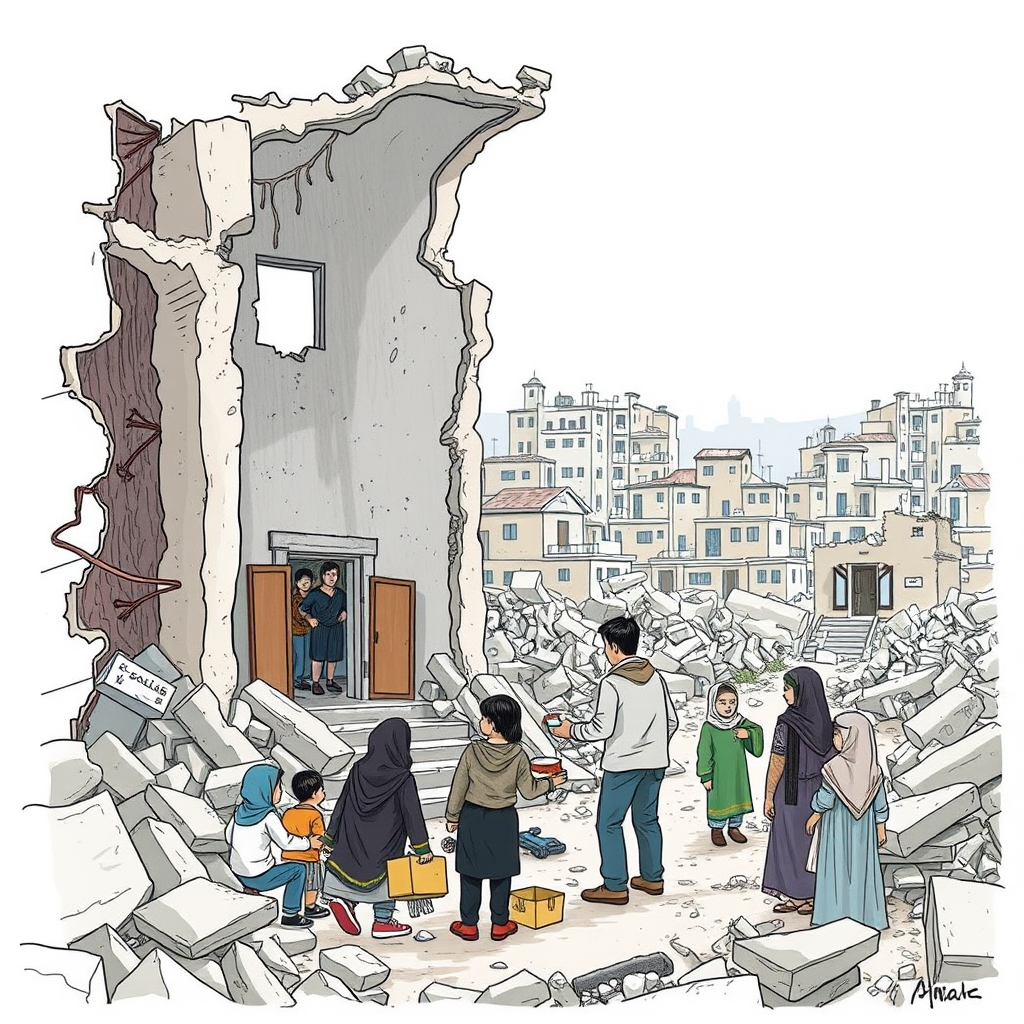Gaza's Future: Israel's Indefinite Control & Crisis Deepens

The situation in Gaza is rapidly deteriorating as Israel solidifies plans for an indefinite military presence, a shift signaling a dramatic escalation of the ongoing conflict and a deepening humanitarian crisis. Reports from within Gaza paint a grim picture of dwindling resources, widespread destruction, and a population bracing for prolonged hardship. Oday Basheer, working with a community kitchen in Deir al-Balah, embodies the resilience and desperation of Gazans, stating simply, “No one’s coming. No one’s going to stop this war.”
Israel’s decision, confirmed this week, to expand military operations and exert indefinite control over the territory comes amidst mounting international concern. The move appears linked, according to sources, to the upcoming visit of President Trump, raising questions about the geopolitical factors influencing the conflict. The scale of the devastation is staggering. The UN estimates that 92% of residential buildings – roughly 436,000 homes – have been damaged or destroyed, leaving an estimated 11,000 bodies trapped under the rubble. The education system is in ruins, with over 95% of schools damaged and many serving as shelters for the displaced.
The humanitarian consequences are catastrophic. A near-total blockade, initially imposed after the October 7th Hamas attack that killed over 1,200 Israelis and foreign nationals, has severely restricted the flow of aid. While a brief respite allowed some supplies to enter, the resumption of attacks in March effectively reinstated the blockade. As of early May, over 52,000 Palestinians have been killed, according to Gaza’s Health Ministry. The UN and aid organizations warn that Israel’s plan to overhaul aid distribution, shifting control away from the UN and towards Israeli-controlled hubs, risks further exacerbating the crisis and violating humanitarian principles. Medical Aid for Palestinians has condemned the plan as a dangerous attempt to weaponize aid.
The situation is further complicated by internal dissent within Israel, with thousands of reservists refusing call-ups and questioning the war’s objectives. Hamas, meanwhile, has signaled a reluctance to resume ceasefire talks, citing the ongoing “hunger war and extermination war.” The international community faces a critical juncture. While the U.S. maintains its commitment to securing the release of hostages and an end to Hamas rule, the escalating conflict demands a more robust and coordinated response to prevent further loss of life and alleviate the suffering of the Gazan population.
The stories emerging from Gaza are heartbreaking. Basheer’s kitchen, supported by World Central Kitchen, is a lifeline for displaced families, but even this is threatened by the ongoing violence. Aid workers are facing immense danger, with over 408 killed since the start of the conflict. The sense of hopelessness is palpable. The long-term consequences of this conflict will be devastating, not only for Gaza but for the entire region. It’s clear that a purely military solution is not viable, and a renewed focus on diplomacy, humanitarian aid, and a just resolution to the underlying conflict is urgently needed. The current trajectory points towards a deepening catastrophe, and the world cannot afford to stand by and watch.